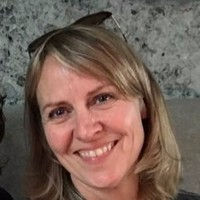The Arctic and Climate Change
- Hilde Huus
- Feb 29, 2016
- 3 min read

Her Excellency Anne Kari Ovind (Photo: enerWE, from Standard Online)
A new ambassador is in town! The new Norwegian ambassador to Canada, Her Excellency Anne Kari H. Ovind, presented her Letter of Credence to the Right Honourable David Johnston, Governor General of Canada, on January 26, 2016. I had a look at her biography (provided by the Norwegian Embassy of Canada and reproduced below) and was struck by the strength of her background in Arctic affairs and climate change. I was curious to see if all of the Nordic countries are prioritizing climate change in the Arctic as much as Norway seems to be doing, so I had a look at each country’s official website. This is what I found.
Finland will be assuming the Chairmanship of the Arctic Council in 2017. The Arctic Council is a high-level international forum for promoting cooperation, coordination, and interaction among the Arctic States on issues such as sustainable development and environmental protection. All of the Nordic countries as well as Canada, the United States, and Russia, are members of the Arctic Council, which is currently chaired by the United States.
The Kingdom of Denmark published its “Strategy for the Arctic 2011 to 2020” in August 2011. It includes the following statement. “In cooperation with the international research and scientific community, the Kingdom will strengthen the effort to quantify global and regional impacts of climate change in the Arctic, including knowledge about how Arctic ecosystems, sea ice and ice sheets respond to climate change. Such efforts include monitoring and research activities with the involvement of Greenland, Faroese and Danish research centres.”
Sweden released its new Environmental policy for the Arctic on January 27, 2016, noting “The Arctic countries have a particular duty to raise the climate issue and lead the way on global action because of their responsibility for the Arctic, and also because together they are responsible for a large proportion of global greenhouse gas emissions.” In May, 2015, Sweden signed an agreement with the United States regarding Arctic research, and stated in a news release that “Sweden is a world leader in polar and climate research. Thanks to the Swedish icebreaker Oden, which is equipped with research laboratories and sophisticated equipment, Swedish polar research has gone from being good to world-leading.”
Norway’s “Arctic Policy for 2014 and beyond” includes the following with respect to research: “The Government will therefore further develop the climate and environmental research being carried out under the auspices of the Fram Centre, and will continue to provide funding for the Research Initiative for Northern Norway and the Polar Research programme, under the Research Council of Norway. The Norwegian Polar Institute has also set up a research project that will enhance knowledge of the sea ice, climate change and meteorology.”
On November 25, 2015, the government of Iceland announced a three-year climate change action plan consisting of 16 projects. “Eight of the projects are aimed at reducing net emissions of greenhouse gases in Iceland; in transportation, fisheries, agriculture and land use… Four projects are aimed at increasing Iceland's cooperation with and support of other states in reducing emissions and addressing the consequences of climate change… Monitoring of glaciers in Iceland will be heightened with the aim of making the results accessible to scientists, the public and tourists; furthermore, the glaciers and their surroundings will be promoted as natural laboratories on climate change.”
I have listed only snippets from each country’s statements on the Arctic and climate change. You may have noticed among them several statements about the importance of research on ice sheets and glaciers. It just so happens that one of the eight founders of the Canadian Nordic Society, Jack Ives, is an international expert and activist on mountains, glaciers and climate change. His field of study has resulted in a life of great adventure and he has many fascinating stories to tell. We are very privileged to have him as our speaker this month.




Comments